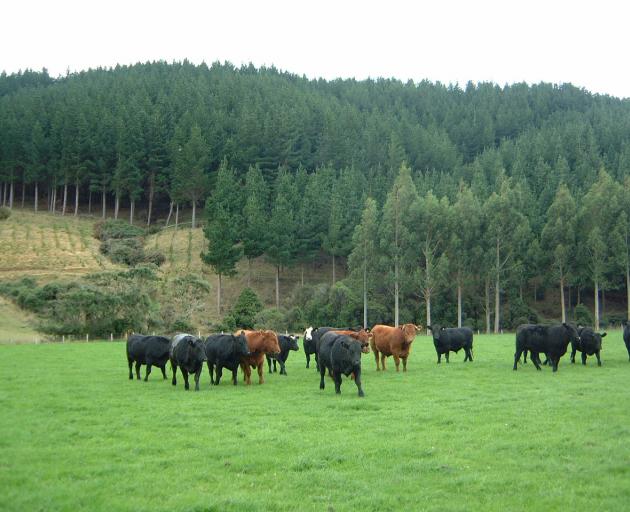
Beef + Lamb New Zealand has been calling for urgent changes to the ETS to stop the wholesale conversion of productive sheep and beef farmland into carbon farms.
The organisation was tracking data on farm sales as concerns continued to grow about the "unbridled ability" of fossil fuel emitters to offset their greenhouse gas emissions by planting trees on productive sheep and beef farms, a statement from B+LNZ yesterday said.
Those policy settings were estimated to have helped drive the loss of about 800,000 stock units, and there were also worrying signs that carbon farming interests were spreading into new areas and on to more productive land, it said.
A report by Orme & Associates, contracted by B+LNZ and released yesterday, showed that, in the first six months of this year, 14,219ha of sheep and beef farmland were purchased with the intent for planting into trees (11,585ha of exotic planting and 2634ha of planting of natives for honey).
That data was provisional and was expected to be higher, given there was a long lag in farm sales being formalised and more sales were likely to have occurred in the first six months of the year.
More than 80% of the whole farms sold into forestry were in clear pasture, compared with 65.7% across the 2017-20 period.
Additionally, there had been an increase in the amount of land sold in the low and moderate erosion susceptibility classifications.
The report also showed sales moving into new areas, including clusters of sales starting to emerge in regions such as Otago.
A further 8832ha of sheep and beef farm sales in 2020 had been finalised since B+LNZ’s previous report in August, adding to previously-reported data making up a total of 28,159ha purchased last year, 24,864ha of which was bought for exotic forestry.
The report said with the increased carbon (cash) flows available to forest plantings, forestry was cementing itself as an even more attraction option.
That had increased since July this year, with the movement of the spot price for carbon reaching about $65.40 on September 9 from $43.50 on June 30.
The geographical spread across the country of the properties signalled more areas were being considered for conversions, and there was a lift in properties being traded in the South Island.
Although outside the report’s reporting period, an additional 8015ha had been approved through the Overseas Investment Office for the South Island and 982ha for the North Island in the July and August decision summaries.
B+LNZ chief executive Sam McIvor reiterated that the Government needed to take urgent action, saying the organisation was extremely concerned the sale of sheep and beef farms into forestry would only accelerate as the carbon price increased, and fossil fuel emitters would continue to receive a "get out of jail free" card and not reduce their emissions.
"The carbon price is inarguably distorting the market with an increased effect on land values, but it’s also changing the type of land sold and where. That’s a major concern."
There was a much better way to increase planting to improve environmental outcomes and that was the integration of trees on farms, he said.
Comments
So the ETS is working as intended. Queue much farmer squealing.
There’s a total loss of perspective going on here. 12 mill hectares of pastoral farmland in NZ, & maybe a few hundred thousand will likely go into forestry. Ironically there have been many thousands of hectares of forestry converted to farms since the 1990s with barely a public murmur. But production forestry has been more profitable than sheep & beef farming for a long time now, even without the ETS, and yet somehow now some farmers seem to think the best rural land should be set aside exclusively for farming. And if they can’t win the intrinsic economic & environmental argument then they’ll just lobby for dumb politicians to back their case & regulate. NZ produces many more times the volume of food it can consume & the world is not running out of food either. The world also wants timber and wood fibre too, which NZ is very good at producing. Let rural land owners work it out for themselves in response to markets & keep politicians out of fundamental land use decisions.

















